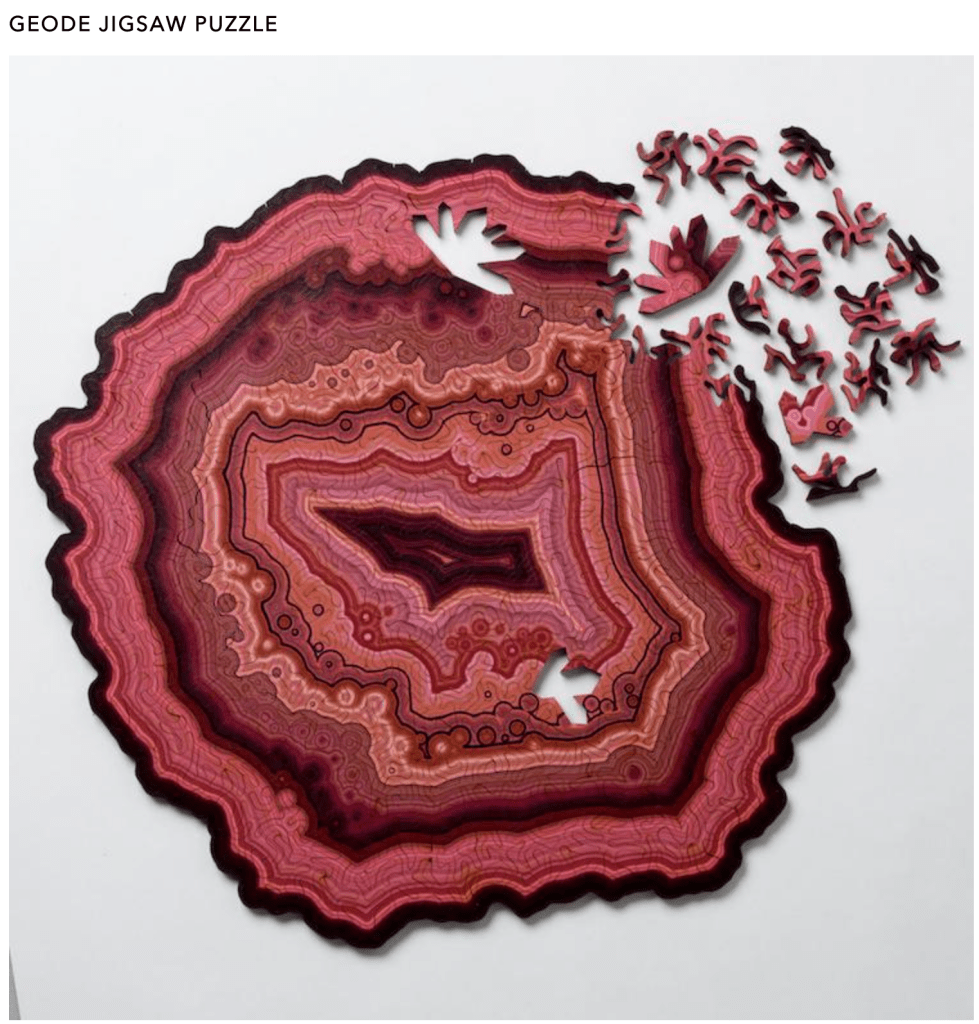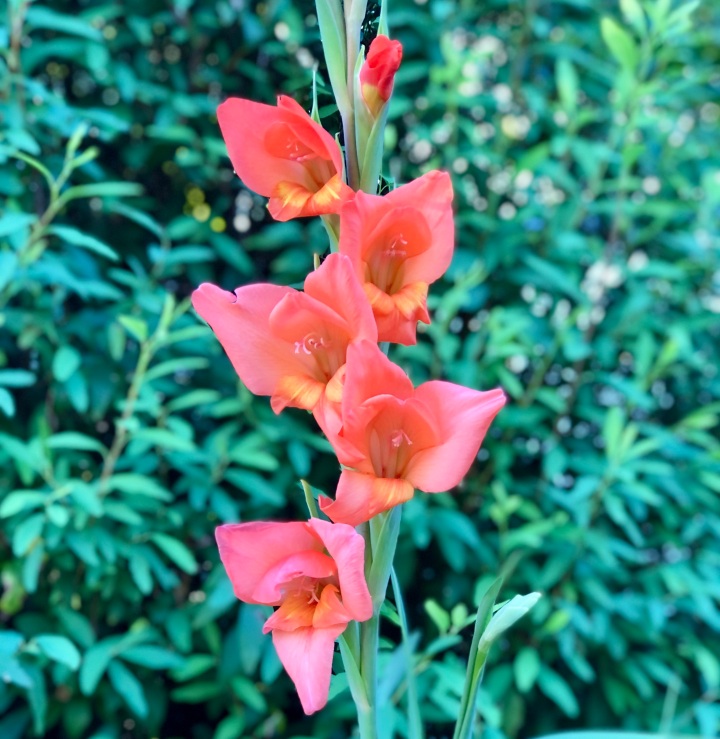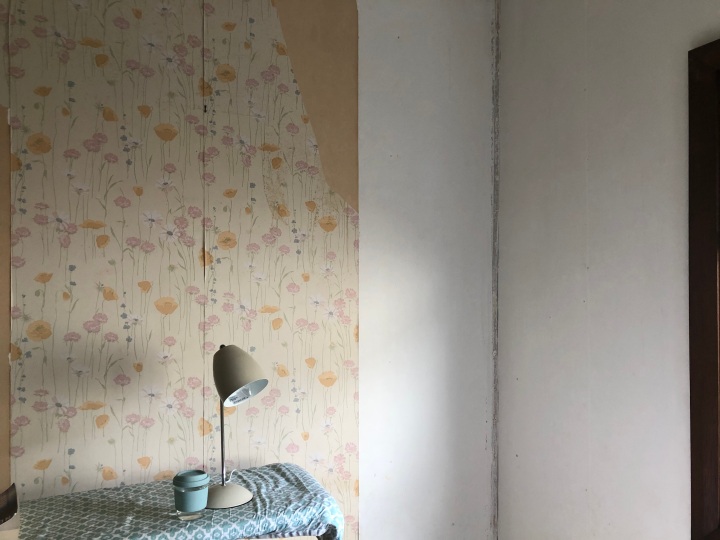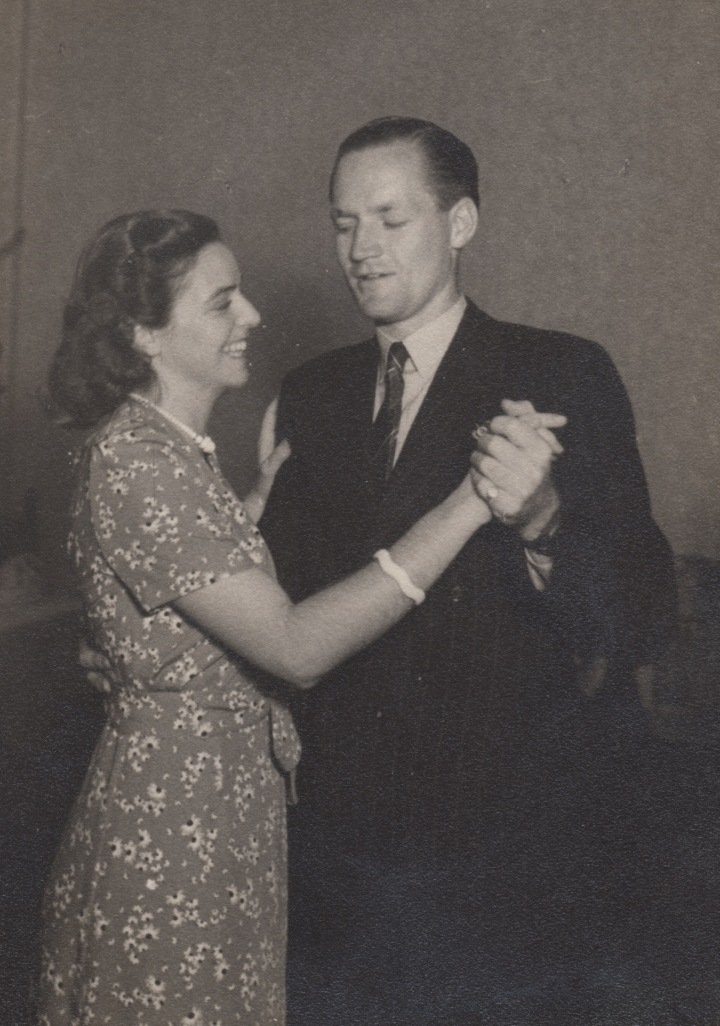
A few days before Christmas, my friend gave me a jigsaw puzzle to take home. She pressed it into my hands with such enthusiasm that I couldn’t resist, even though I don’t normally like doing puzzles. I usually get annoyed and frustrated when I can’t find the right piece, but I took it home because I thought having a puzzle on the go might lure my children away from their phones for at least a few minutes. It worked after a fashion, but then they all went home and left me with a pile of pieces, all crying out to find their proper place in the ‘big picture’, and I just couldn’t resist having a go at it myself.
In Australia, Christmas falls right at the beginning of the long summer holidays, a time when I always feel lethargic. The days are long and humid, and I don’t have enough energy to do anything except waft about, complaining that it’s too hot. I start books and abandon them half-way through. I make resolutions I know I won’t keep, and feel vaguely annoyed with myself and the world, so a puzzle was just the thing to give me a sense of purpose.
My husband rummaged around in the garage and came back with a piece of hardboard to put the puzzle on. It was a map of the world (circa 1960). It still had lots of pink (Commonwealth) countries. Sri Lanka was still Ceylon, and Tanzania was still called Tanganyika. He flipped it over and it became the perfect place to sort through the pieces.

When Christmas was over, we moved the puzzle from the living room into my study, where I continued to sit in front of the pieces contemplating life and pretending to myself that I was doing something productive.
My husband would come in to give me encouragement, or advice about how I had too many pieces cluttering up the middle of the puzzle (true). I couldn’t see the wood for the trees. But every time I found a home for piece, I felt good about myself and the world. It made me wonder who invented this curious form of entertainment, and why.
It turns out that John Spilsbury, an English engraver and mapmaker, gets the credit for inventing the jigsaw puzzle in 1767, when he attached a map to a piece of wood and carefully cut out each country. Teachers used Spilsbury’s puzzles to teach geography by asking students to piece the map back together again.

In those days, they were called ‘dissected maps’ and weren’t known as jigsaws until the invention of the fret treadle saw (also known as a jigsaw) which was operated with foot peddles like a sewing machine. By 1880, jigsaw puzzles were being machine crafted, and although cardboard puzzles entered the market, wooden jigsaw puzzles remained popular until the 1930s, when the puzzle craze reached its peak in the USA. Manufacturers mass-produced die-cut cardboard puzzles and sold them cheaply enough for most Americans to afford, even in the Great Depression.
Puzzles have enjoyed a huge resurgence in popularity over the last couple of years, for obvious reasons. People are stuck at home and they’re a relatively cheap form of entertainment. According to psychologists, puzzles are very appealing when we are feeling stressed because they give us a sense of control and have a known outcome. They are the perfect antidote to living in a world where everything seems out of control.
I think I’ve changed my mind about doing jigsaws, although I have to say that a lot of them don’t really appeal to me. I might do another one next summer and if I do, it might be this one, which I think is beautiful.










